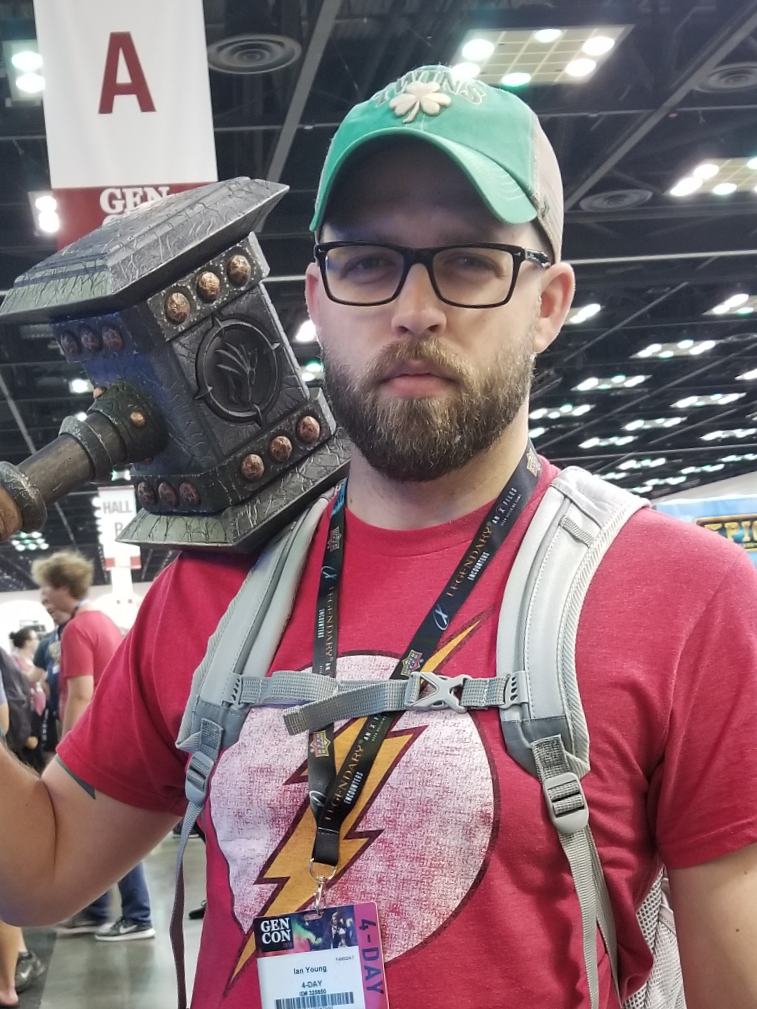Check The Facts: How to Better Receive Critique and Rejection

Post written by guest writer Ian Young.
You’ve just received an email from your editor. This was the first time they read through your writing. You desperately want them to say it’s perfect, to validate your worth as a writer. Instead, they say something like, “Right now it’s hard to read,” or, “We have a lot of work to do to get this in shape,” or, “I see areas for improvement.”
And what you just heard in your head was: Your writing is worthless and so are YOU!
Bring on the sweatpants, wine, and depression.
It sucks to hear that someone didn’t enjoy, or even saw faults, in something you poured your heart and soul into. It cuts deep; it makes you question everything.
Unfortunately, we all decided at one point to become writers, authors, playwrights, screenwriters—creatives—and in our world of subjectivity, critique is not the exception, but the rule. A hard rule.
I’ve only held one professional writing job. I worked at a company that maintained and serviced hospital equipment. My job was to help department leaders determine if their capital budget requests (anything with a purchase price of $5,000 or higher) were necessary. Basically, I wrote: “Yes, replace this,” or “No, don’t buy a new that” with a lot more words. I worked on a department with two other writers and we edited each other’s work. Naturally, whenever I got my work back covered in red marks, all I saw was failure.
But why? Writing capital budget reports was never my dream. It wasn’t personal. It was part of the job, right?
Nope. I felt defeated. Every single time.
It was personal, because what I wrote came from MY head and I took time thinking about what needed to be written and how it needed to be written. We can all agree that grammar, syntax, and punctuation are important aspects of good writing. Consider them a necessary constant. Everything else was up to me.
My coworkers had the nerve to disagree.
It’s the same with creative writing. Potentially even more so. With writing capital budget plans, there were criteria I needed to cover. With my creative writing, the only limit is my own imagination. This makes it personal. Incredibly personal. Because my characters and stories are reflections of me.
I think this is where we as writers get stuck. We tell ourselves that our writing is for fun, for careers, for creativity, or simply a hobby. The truth is, writing is the way we have chosen to explore ourselves. Sure, a story about robots or starship pilots is not based on real life, but the interactions between those characters and their emotions are very much real.
To write is to be vulnerable, and just like the thought of people laughing at you naked, any critique or criticism that infringes on that vulnerability is going to hurt. It’s going to hurt every damn time.
We could quit, but the world would be the lesser for it. How do we persevere?
I check the facts.
FACT #1: Writing is subjective. Where objective concepts are devoid of emotion and based in fact, subjective concepts are the exact opposite. Our stories are rife with deep emotions, influenced by our experiences, perceptions, and desires. Those are as unique for each person as are their fingerprints. My sensibilities will not be the same as yours, and your reader is guaranteed to be different as well. Similarities? Sure! But uniquely different.
This means that you can’t expect readers to all have the same emotional reaction to your work that you had in your head. In addition, readers, editors, and agents haven’t had the story live in their heads for years. There will be things lost in translation. Because of this subjectivity, some people just won’t like what you write, regardless of how strong of a writer you are, or they will have their own ideas of what you need to do to improve.
Fact #2: It isn’t personal. It feels personal, but it’s not. An editor’s job is to take your story and make it read better. They go through manuscript after manuscript, editing, tweaking, suggesting—all to make it better. Most of us even pay these editors money to help us (if you don’t, you should). They are professionals, and their opinions are solely focused on improving your work and your writing.
NOT IMPROVING YOU!
With the wonders of the internet, every a-hole out there has a way to express themselves, and there are a lot of them. Don’t believe me? Just check book reviews on Amazon and Goodreads. There are always at least one or two reviewers who HATE the books they review. They write as if they were personally assaulted while reading. While their comments can seem personal, they’re not. They don’t know you; they don’t know what you’re like in person, or what you like, or what you believe in. They don’t know your traumas or your triumphs. They are simply using a teeny-tiny bit of information—gleaned from your writing—and extrapolating it to fully encompass who “you” are.
Just keep telling yourself: It’s not personal.
Fact #3: You’re not alone. From new writers to the masters of the craft, none of us like the feeling of critique, but we all go through it. Knowing that what you are feeling is actually totally normal sets you on even footing with even the most seasoned of writers. Everyone takes feedback differently, but, in the end, nobody enjoys it. If someone says they like it, they’re probably a robot.
Remember, every writer who has released their work to the public eye has dealt with harsh criticism, rejection, and feelings of defeat. So, embrace it. It’s part of the gig. When you feel depressed about it, let yourself feel that way. It’s ok! But don’t let those feelings stop you from doing what you want. You aren’t alone. You are among family.
Fact #4: Pobody’s Nerfect! No matter how hard we practice our craft, take classes, and try with all our might to improve, we aren’t perfect—that’s what makes us human. Making mistakes is a very real, and essential, part of the human condition. We err, we learn, we move on. At least we’re supposed to.
The best part of this fact is that it can be extrapolated to those giving us critique. I’ve had multiple editors look at my current manuscript and guess what? All had different opinions.
There are going to be bad editors out there. Bad reviewers, beta-readers, and agents. They may not know how to properly give you feedback and/or pride themselves in being harsh (which they mask as “honesty”). It is ultimately your job to determine if their feedback is something you should put stock in, and if they are correct FOR YOU!
In the end, the negative feelings from receiving tough feedback won’t go away completely, but understanding where those feelings come from will help dull the agony. For us, it’s just part of the job. You can only succeed through failure. Next time, when someone who reads your work doesn’t react the way you want (that’s happened to me), or picks on elements you felt were perfect (yup, that too), or just flat out hate on you or your writing (it’s felt like that to me), just remember why you write.
For you.
 Ian Young is an American writer who has lived in the Twin Cities, Minnesota, for most of his life. When not writing, you’ll find him serving drinks at the local coffeeshop, playing board games with his kids, or working in his garage woodshop. Ian’s short stories, and novel-length projects, can be found on his website. You can also connect with him on Instagram @ianyoungwrites.
Ian Young is an American writer who has lived in the Twin Cities, Minnesota, for most of his life. When not writing, you’ll find him serving drinks at the local coffeeshop, playing board games with his kids, or working in his garage woodshop. Ian’s short stories, and novel-length projects, can be found on his website. You can also connect with him on Instagram @ianyoungwrites.
Stay connected with news and updates!
Sign up to receive our newsletter, special coupons for our products, and announcements about our growing selection of tools for authors!
We hate SPAM. We will never sell your information, for any reason.




